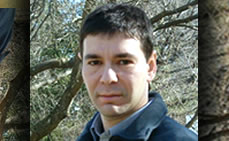The Nurse Practitioners Are In
By Jacob M. Appel, MD JD
 A provision of this year’s New York State budget agreement, largely unnoticed beyond the medical community, may have transformative ramifications for the delivery of healthcare, especially in underserved communities: Starting on January 1, 2015, the Nurse Practitioners Modernization Act will permit nurse practitioners to provide care without a supervising physician. Seventeen mostly smaller and western states already allow NPs such autonomy. The nation’s 113,000 NPs, who have been eligible for Medicare reimbursement at non-hospital clinics since 1997, increasingly offer services traditionally performed by internists and family physicians.
A provision of this year’s New York State budget agreement, largely unnoticed beyond the medical community, may have transformative ramifications for the delivery of healthcare, especially in underserved communities: Starting on January 1, 2015, the Nurse Practitioners Modernization Act will permit nurse practitioners to provide care without a supervising physician. Seventeen mostly smaller and western states already allow NPs such autonomy. The nation’s 113,000 NPs, who have been eligible for Medicare reimbursement at non-hospital clinics since 1997, increasingly offer services traditionally performed by internists and family physicians.
Not surprisingly, advocacy groups for medical doctors, including the AMA, have objected to this encroachment on their professional turf. Their objections are grounded in concerns over the level of training that NPs receive. However, in the primary care setting, the data suggests that NPs and MDs produce similar outcomes. An extensive Columbia University study, for instance, found that both at six months and at two years, patients treated by NPs did as well as those treated by MDs, and even demonstrated lower blood pressures. A recent report in Health Affairs also noted that care provided by NPs may prove less costly, as they are prone to order fewer expensive and unnecessary tests. For many indigent or homebound patients in underserved communities, especially in upstate New York, the choice is not between seeing an MD or an NP; it is between seeing an NP or receiving less care. Since NPs must operate within a limited “scope of practice,” little fear exists that they will be performing neurosurgery or organ transplants without training.
The need for NPs is not a result of market forces. Rather, it is the direct product of an artificial doctor shortage partially created by MDs themselves. No new medical schools opened in the United States between 1982 and 2000, largely as a result of pressure from existing physicians to keep competition low—and reimbursement high. Moreover, many doctors choose to settle in lucrative urban markets. Of the nation’s 25,000 psychiatrists, for example, 2,710 practice in metropolitan New York City and 40 in Wyoming. Some of this shortage is alleviated by foreign medical school graduates who serve residencies at American hospitals, but then must return to their home countries. While the last decade has seen efforts to increase the number of medical school slots, it will take years for this supply to catch up with the needs of an increasingly aging population.
Nurse practitioners are not the only healthcare professionals looking for expanded powers. Psychologists continue to seek prescribing rights, which they already possess in New Mexico and Louisiana. In some states, but not New York, midwives are still required to have licensing agreements with obstetricians. While the floor for admission to these professions may indeed be lower than for admission into medical school, that may be because the floor for admission to medical school is inappropriately high, impeding the career opportunities of many promising clinicians. What matters to most patients is the knowledge, availability and bedside manner of their provider, not the sequence of letters after that individual’s name.#
Jacob Appel is a Harvard trained attorney, a Columbia-Presbyterian educated physician who is completing a residency in psychiatry at Mt. Sinai Hospital in NYC.
